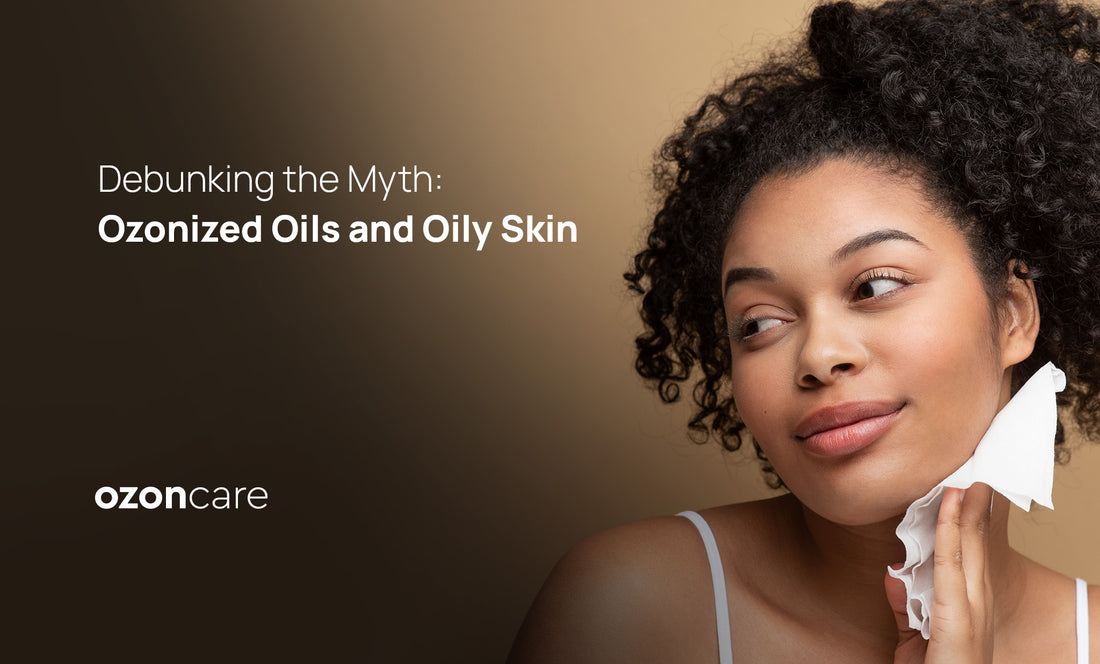
Debunking the Myth: Ozonized Oils and Oily Skin

Can You Use Ozonized Oils on Oily Skin? Absolutely!
We understand that many people with oily skin are hesitant to use products containing oils. Let’s clear up this common misconception. Ozonized oils are perfectly safe and beneficial for oily skin!
The Science Behind Ozonized Oils
When vegetable oils undergo the ozonation process, ozone reacts with the lipid chains in the oils. This chemical reaction results in ozonized oils that are lightweight and non-comedogenic, meaning they won't clog your pores or cause blackheads and acne.
Benefits of Ozonized Oils for Oily Skin
Far from being harmful, ozonized oils can actually help oily and acne-prone skin. They offer astringent, antiseptic, and antimicrobial properties, making them a great addition to your skincare routine.
The Real Culprit: Over-Cleansing
The real issue for oily skin is not the use of oils but rather excessive cleansing and abrasive products. Over-cleansing can strip away the skin’s protective hydrolipidic mantle, leading to moisture loss and increased oil production. This triggers the skin to produce more sebum, causing the infamous rebound effect.
Achieving Balance with Ozonized Dermocosmetics
To avoid the rebound effect, it's essential to maintain a balance of oil and water on the skin’s surface. Ozonized dermocosmetics are excellent for achieving this balance. These products help keep your skin's moisture and lipid levels in harmony, promoting a healthier complexion.
Discover the Advantages of Clean Beauty
Ozonized oils align perfectly with the principles of clean beauty. Free from harsh chemicals and full of beneficial properties, they offer a natural solution for oily skin. Embrace the benefits of ozonized dermocosmetics and enjoy a balanced, healthy complexion.
Conclusion
Ozonized oils are not only safe for oily skin but also highly beneficial. They help regulate sebum production, provide antimicrobial benefits, and support overall skin health. Avoid the pitfalls of over-cleansing and embrace the power of ozonized dermocosmetics.
Did you find this information helpful? Share your thoughts and experiences with ozonized oils in the comments below!




